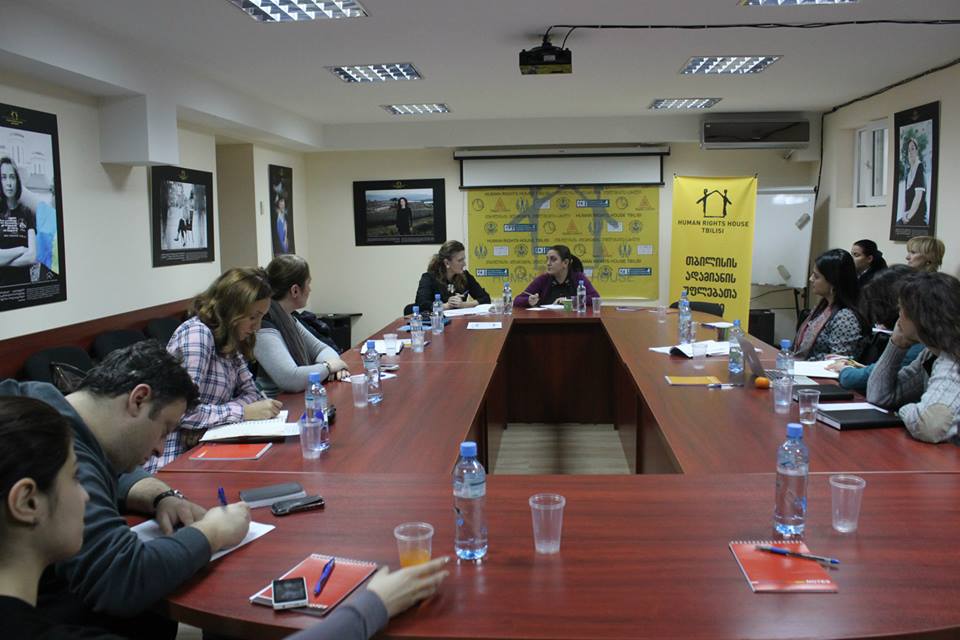Maka Shamugia
On December 18, Human Rights House Tbilisi organized a round table about the problems and challenges of IDPs.
The participants said living conditions of IDPs have not improved during many years and they need urgent help from the state. Hard social life, poor living conditions, registration problems of their accommodations – these problems were revealed by the mobile group of human rights defenders of the HRHT during their visits in the IDP settlements.
“In the frame of today’s meeting with the representatives of nongovernmental organizations, Public Defender’s Office and media organizations we discussed the problems and living conditions of IDPs; their social problems, their right to adequate accommodation, legal gaps in the registration of accommodations,” board chairwoman at HRHT Nino Elbakidze said.
According to the HRHT, there are gravest living conditions in two compact settlements of IDPs in Tskaltubo; they are former buildings of the sanatorium Metallurgist and Friendship. The IDPs have been living in those building for years. 70 families are registered in the Metallurgist but only 30 of them live there. The building is damaged; inhabitants do not have individual toilets and electricity supply. The building of the sanatorium Friendship is also in poor conditions; about 80 families live there and complain about the lack of individual electricity counters.
“Public Defender’s Office systematically monitors situation in IDP settlements to study human rights situation of IDPs and needs of each settlement. Our monitoring exposed several problems, that are connected with low awareness of IDPs about recent changes into the relevant laws, privatization procedures and long-term accommodation program,” said Shorena Kakitashvili, representative of the PDO.
In the frame of the project, HRHT representatives visited the former military school in Tbilisi. They said the major problem of IDPs living in the school is that families with 4 and 5 members live in the rooms of 12-14 square meters. The IDPs use one room as a rest-room and kitchen; the inhabitants clarified that when representatives of the Ministry of IDPs and Accommodation visited them, they did not offer any alternative accommodation to inhabitants.
“Although the legislation was improved and the government launched long-term program to give proper accommodations to IDPs, there are still many problems in practice. System of criteria is problematic which is unclear for IDPs because they cannot understand how their conditions are evaluated,” lawyer of the Article 42 of the Constitution Sofo Aleksidze said.
During the discussion, participants spoke about the buildings which are at the edge of collapse. Representatives of the HRHT said the inhabitants must be immediately removed from those buildings and moved into alternative accommodations.
The project, in the frame of which the round table was organized, is funded by the Embassy of the Kingdom of Netherlands in Tbilisi. The project set up a mobile group of human rights defenders, who study problems of citizens on the place and provide them with free legal and psychological aid.
News
December 13, 2023
Ethnic minorities outside the peace dialogue
November 6, 2023
‘Peace’ agenda of political parties
Popular
Articles
February 13, 2024




